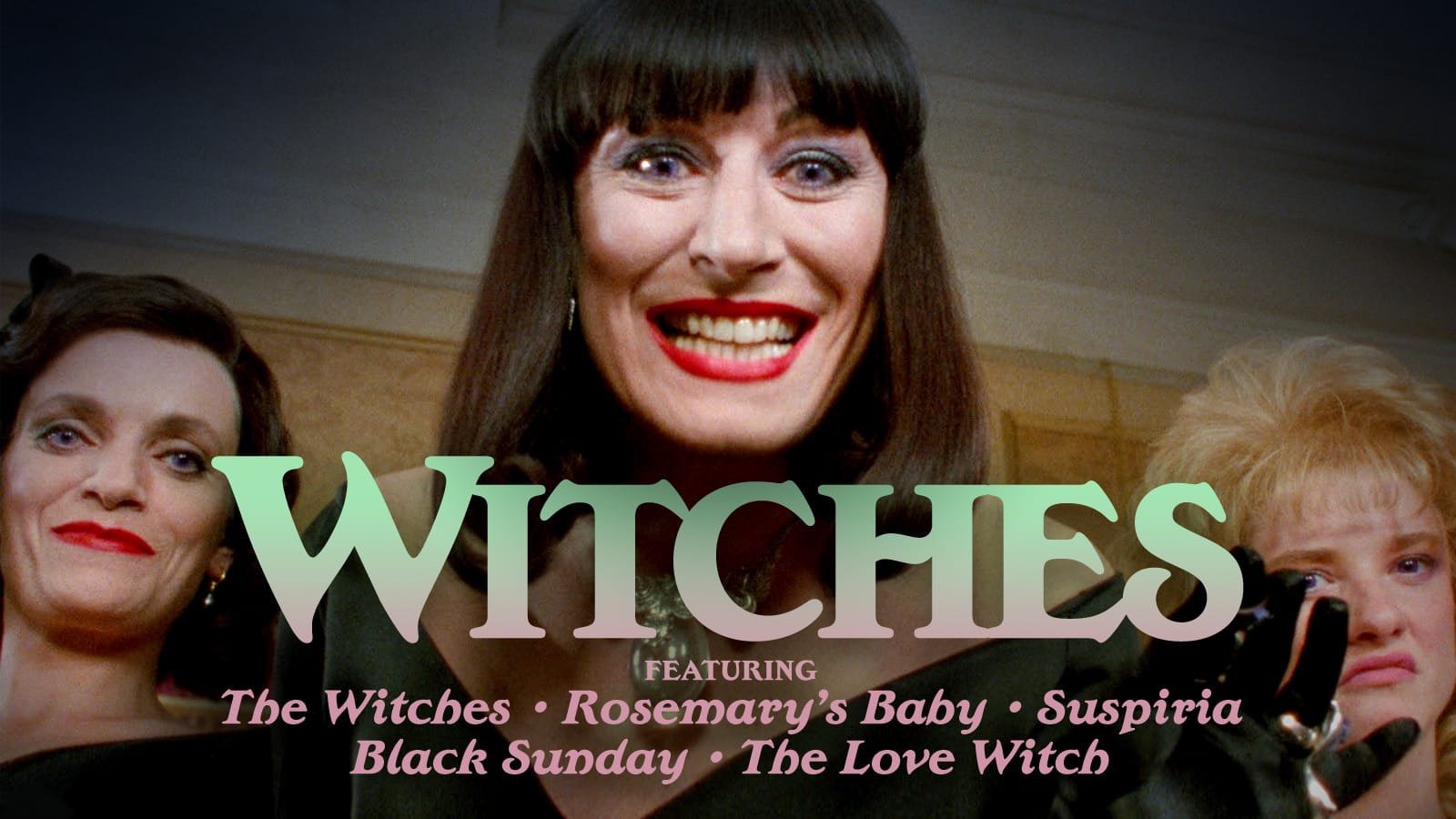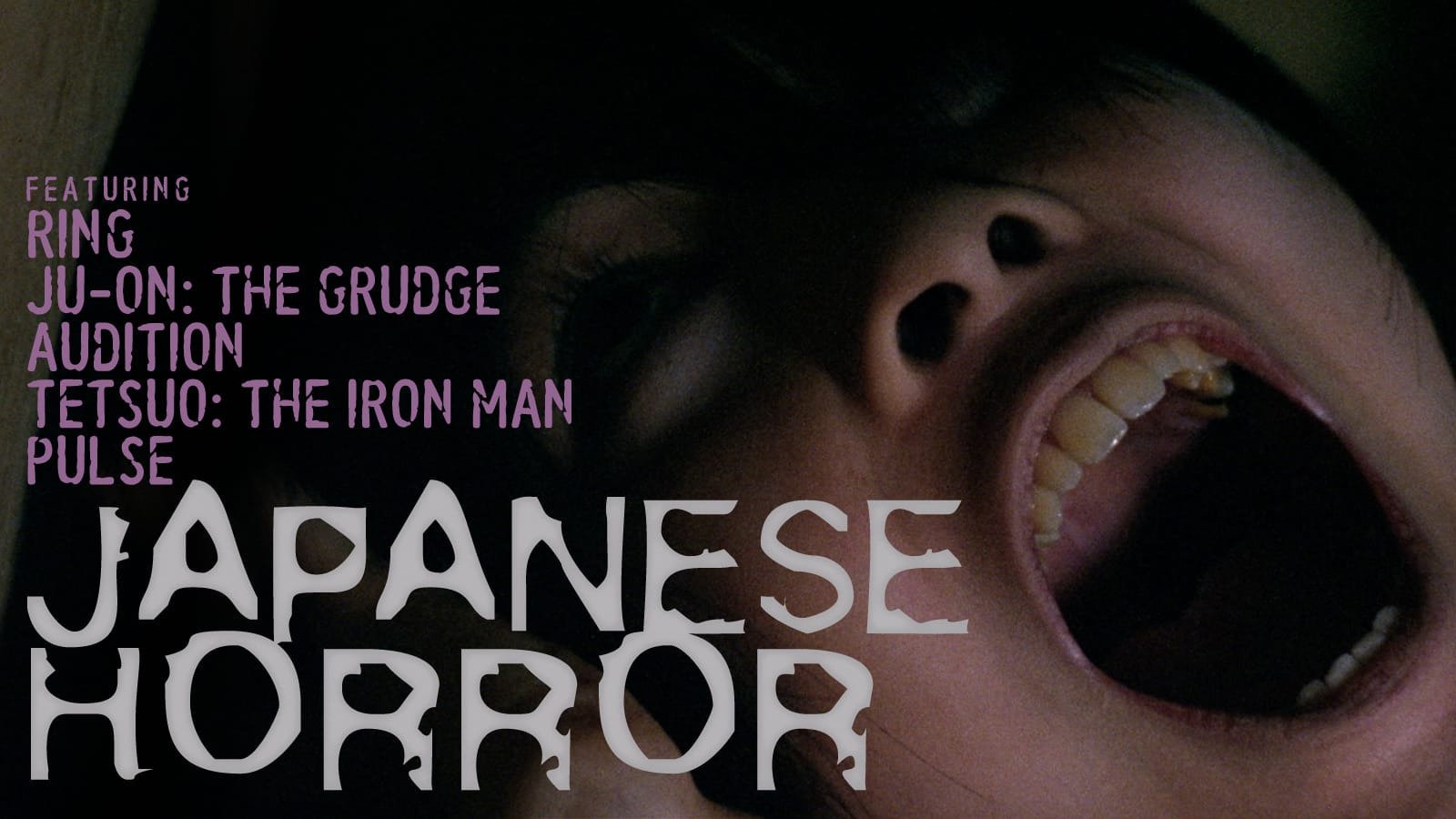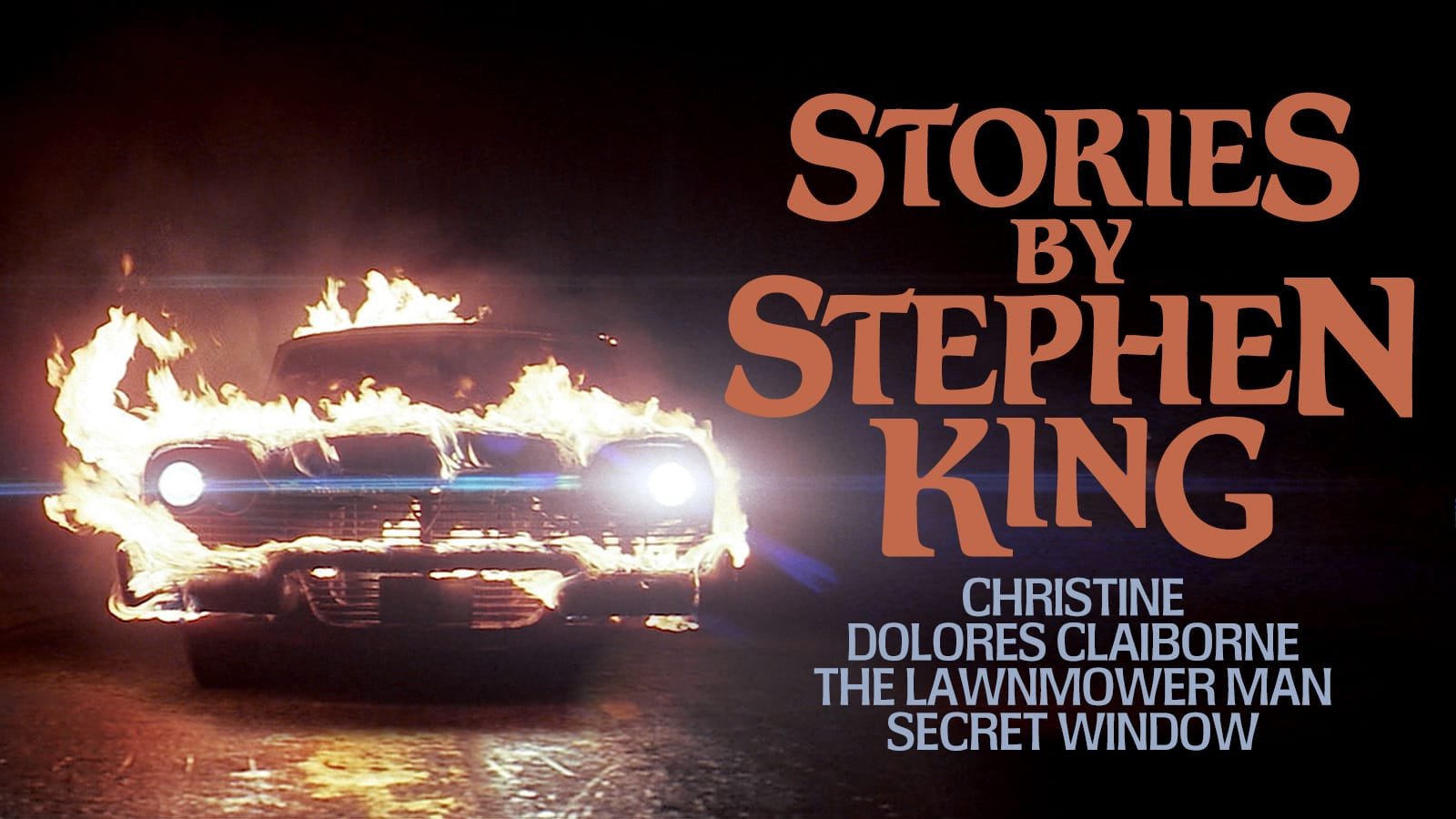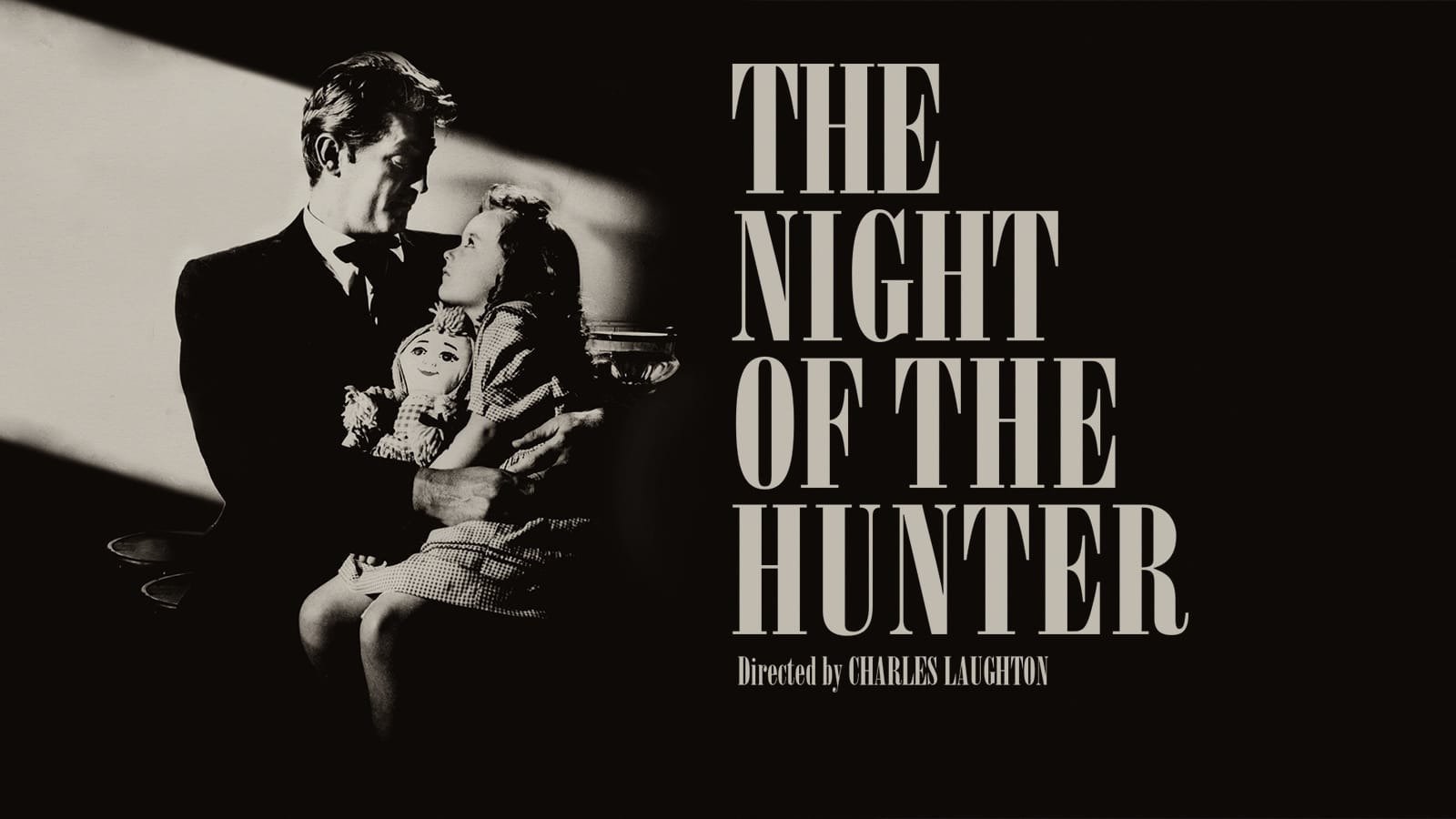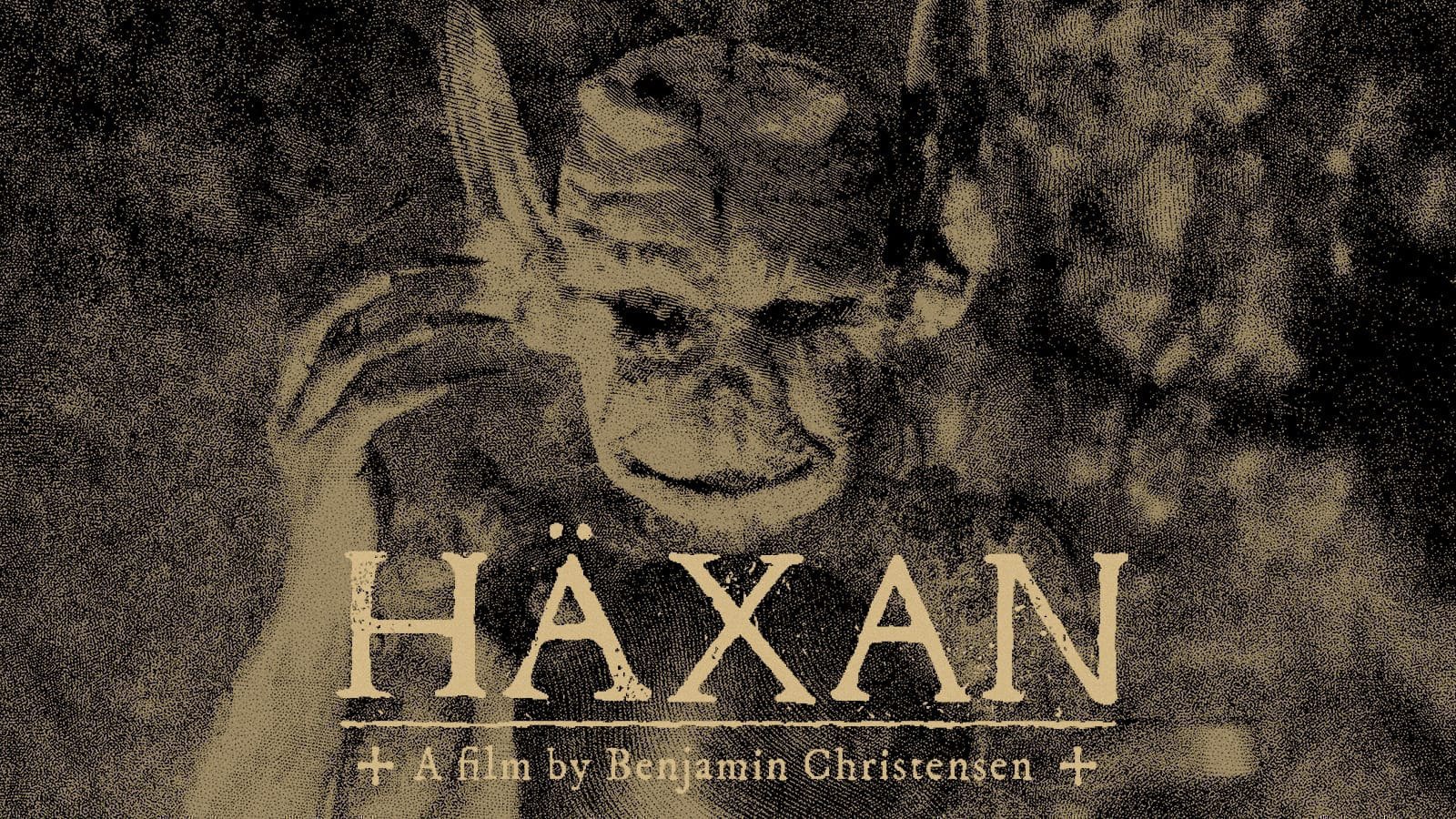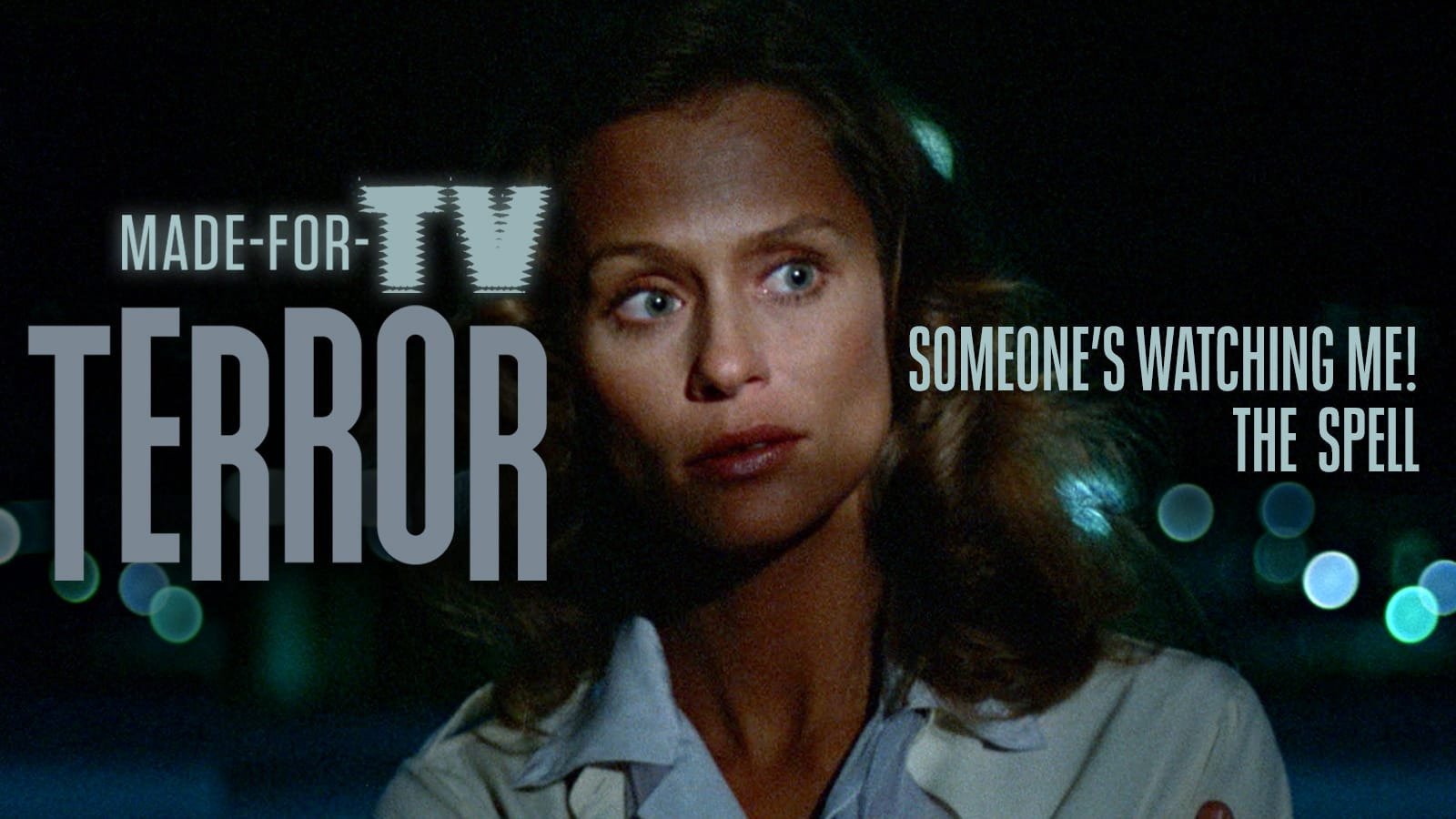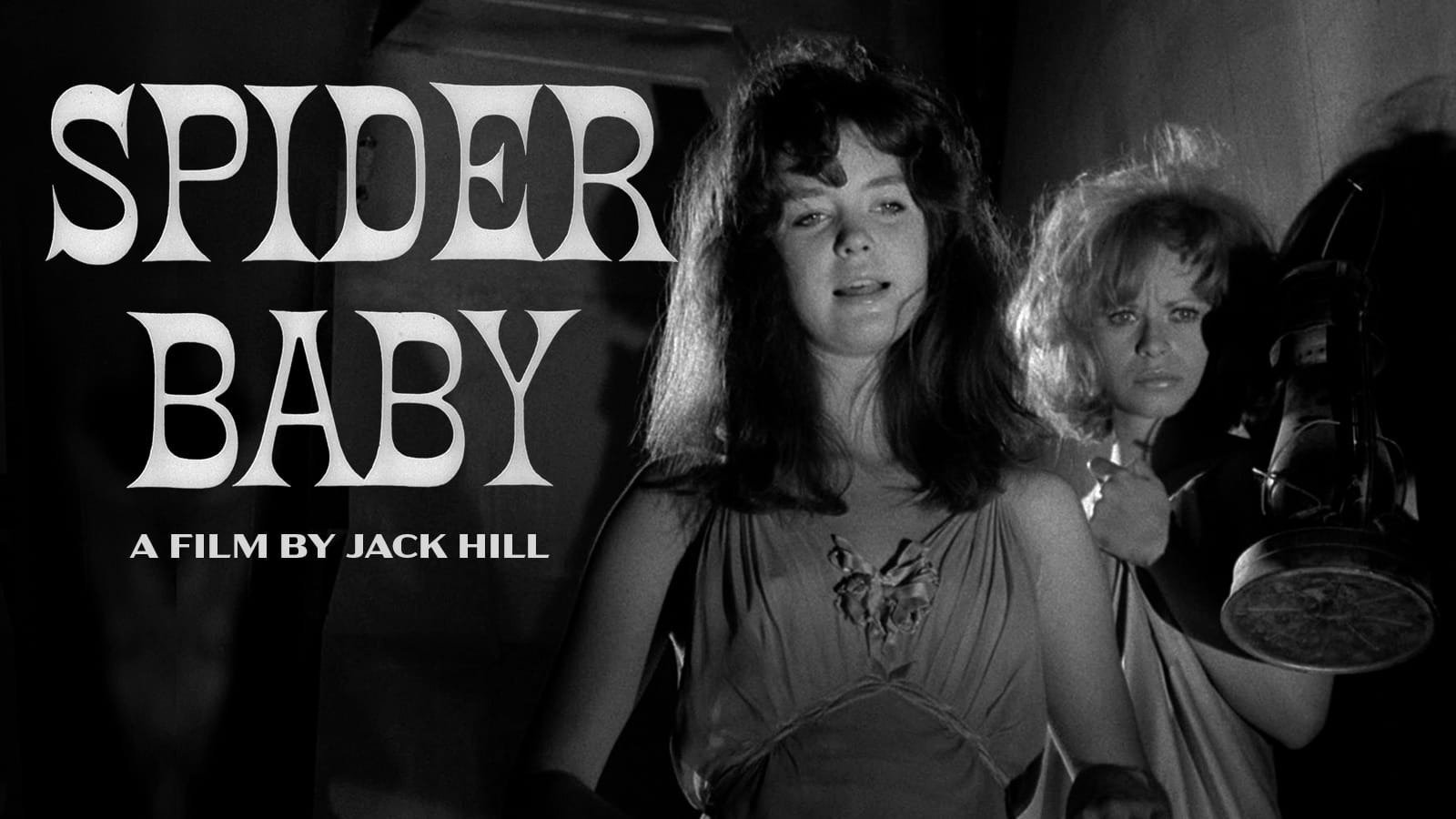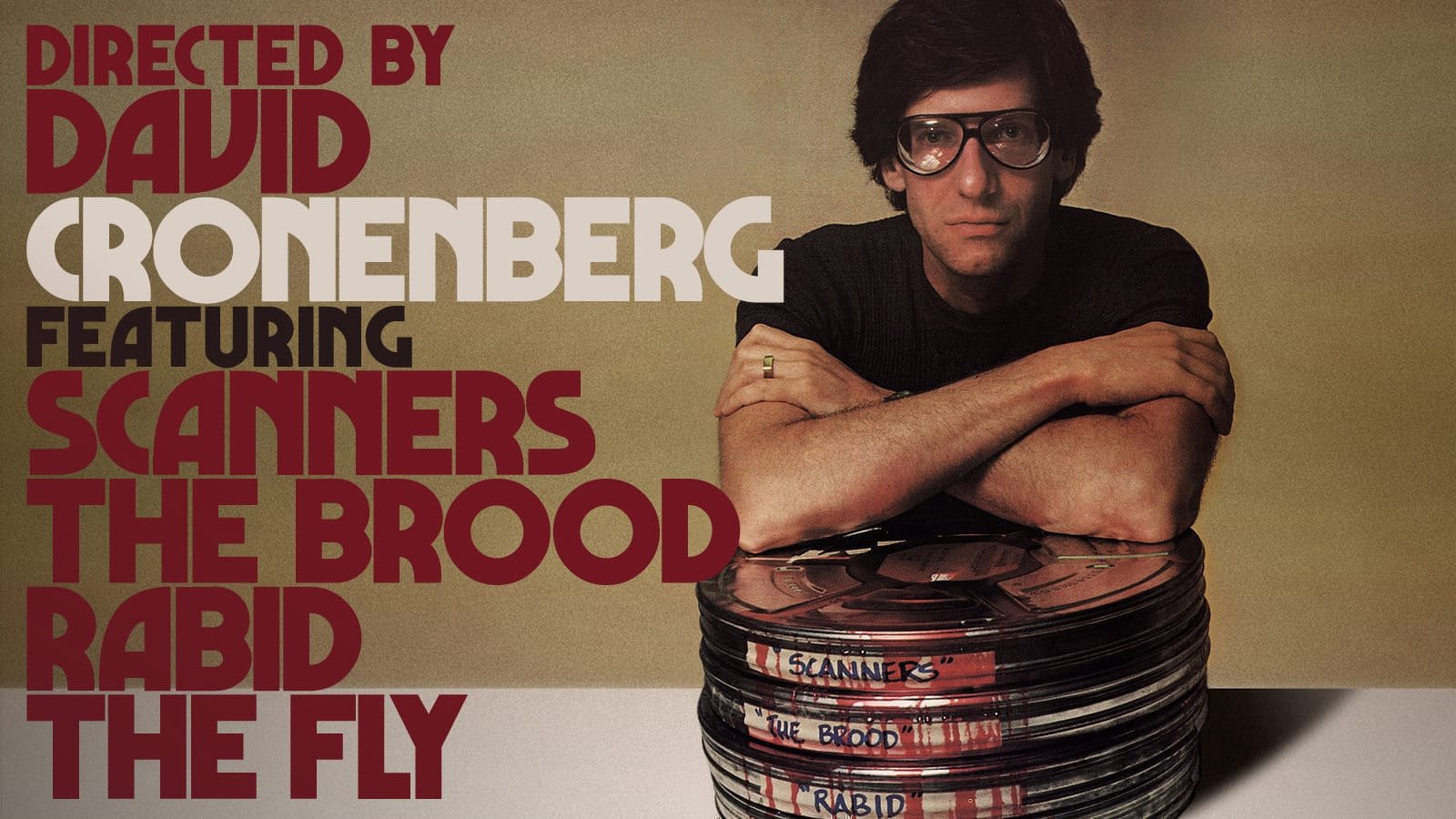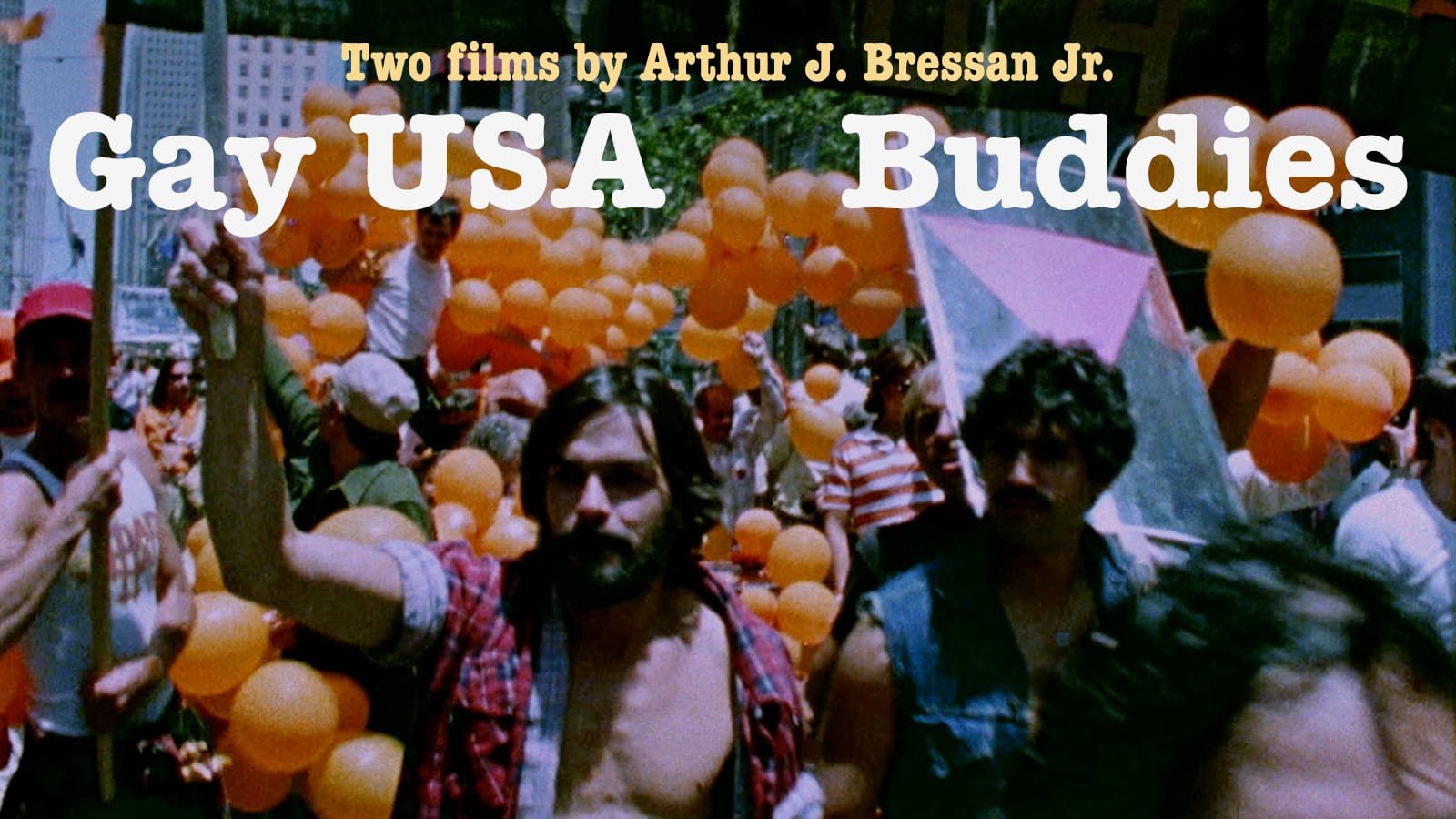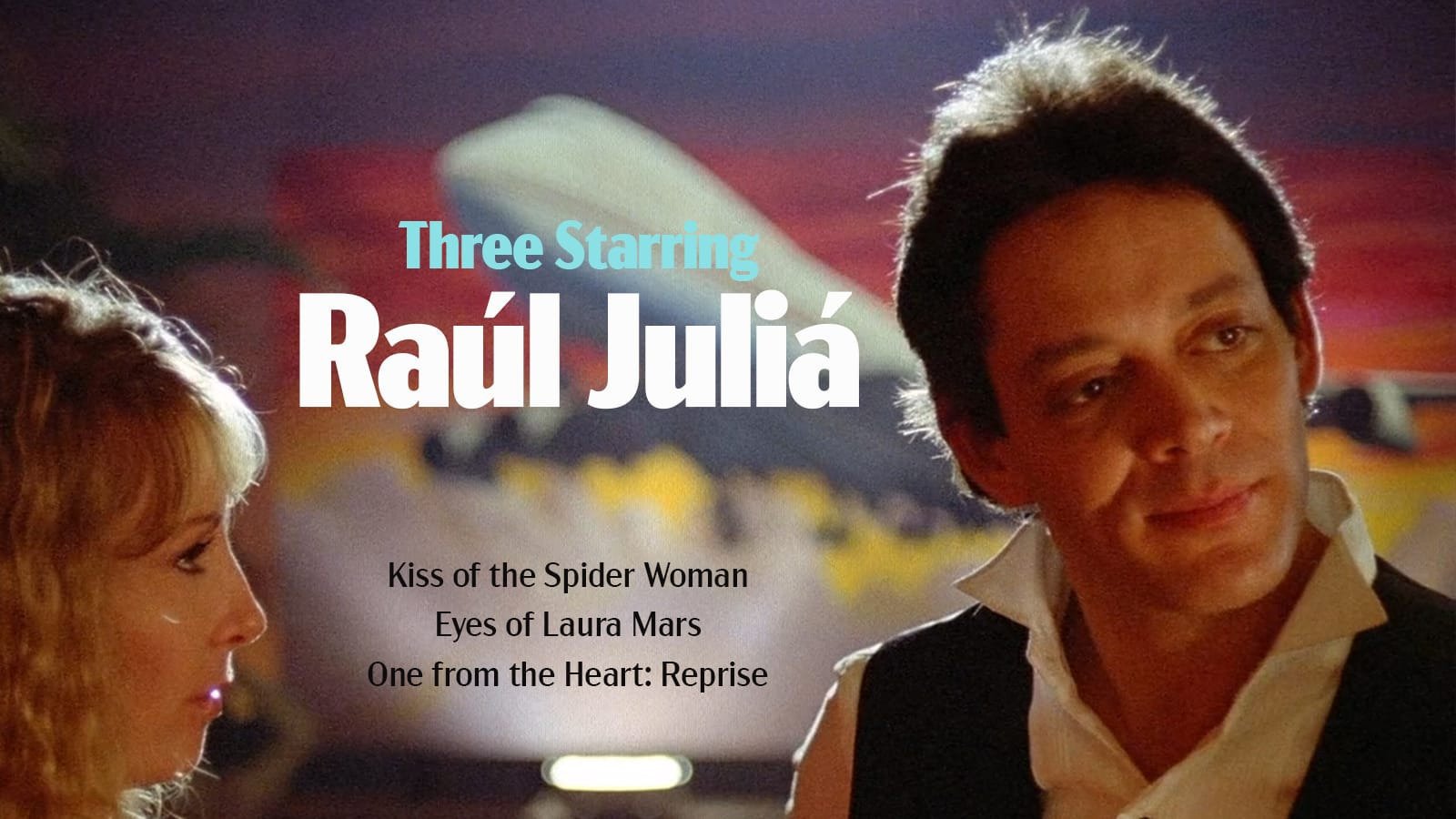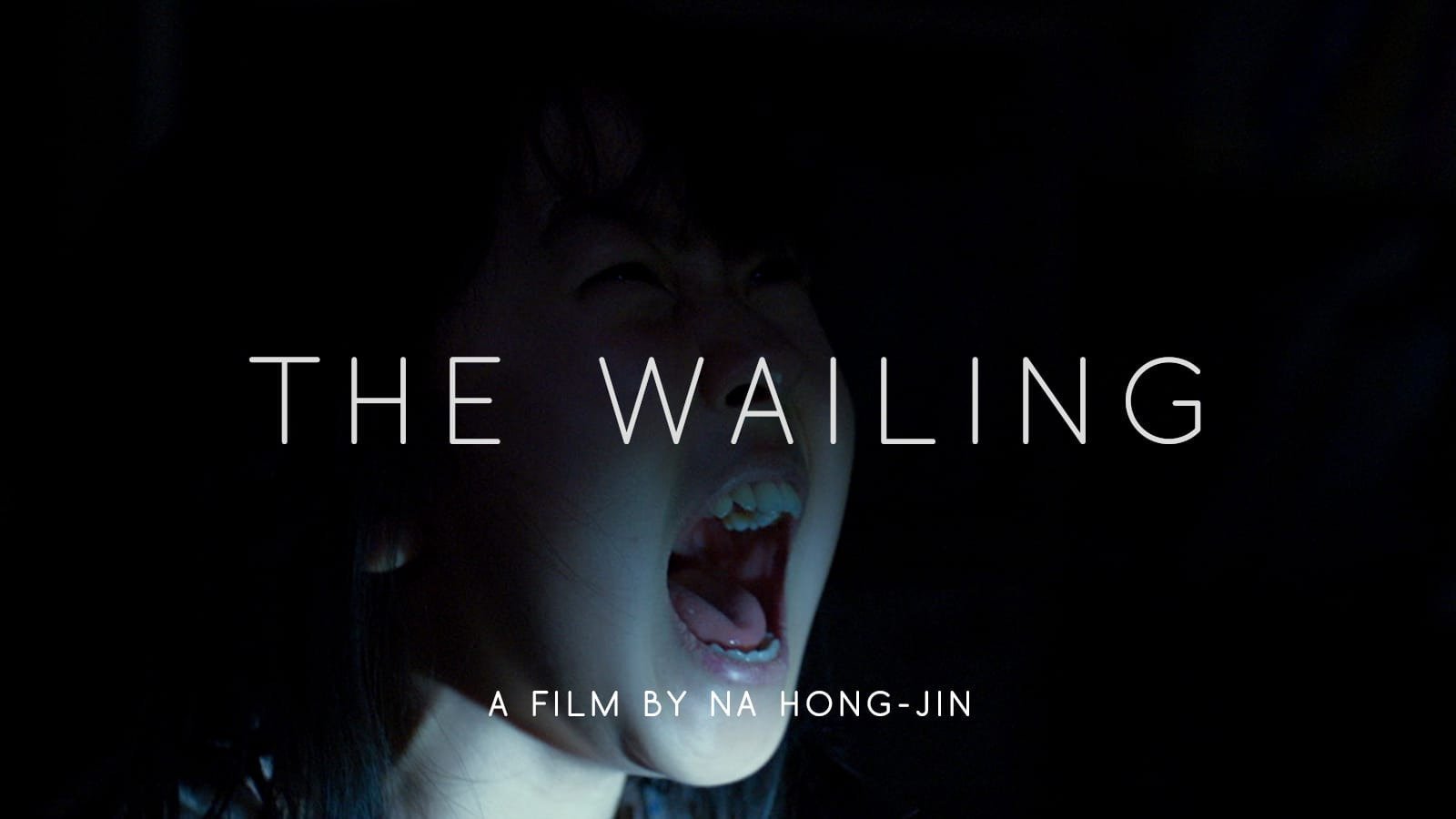Here’s What’s Coming to the Criterion Channel in October 2024
The Criterion Channel’s October 2024 Lineup
This October, terror casts a spell on the Criterion Channel! With grisly special-effects showcases, some of cinema’s most memorable witches, chilling Japanese horror classics, and spine-tingling Stephen King adaptations all on deck, there’s plenty to choose from for your spooky-season viewing. But that’s not all: we’re also showcasing Winona Ryder’s era-defining charisma, Lionel Rogosin’s boundary-breaking docudramas, Arthur J. Bressan Jr.’s trailblazing queer storytelling, and Raúl Juliá’s incandescent acting.
If you haven’t signed up yet, head to CriterionChannel.com and get a 7-day free trial.
*Indicates programming available only in the U.S.
TOP STORIES
Horror F/X
Featuring a new introduction by special-effects makeup artist Howard Berger, owner of KNB EFX
Before CGI, the art of horror was defined by pioneering makeup and effects artists who brought monsters, gore, and uncanny terror to life through genre-defining ingenuity and imagination. While Universal Pictures laid the foundations for Hollywood horror cinema in classic monster movies like Frankenstein and Creature from the Black Lagoon, the art of horror effects underwent a renaissance in the 1970s and ’80s, when visionary artists like Dick Smith (Scanners), Rick Baker (An American Werewolf in London), Rob Bottin (The Fog), and Tom Savini (Day of the Dead) took the genre to new heights of splattery realism. This selection brings together some of the most audacious triumphs of practical-effects innovation from across horror history, from the genre’s creature-feature origins to the bloody nightmares of the home-video era.
FEATURING: Frankenstein (1931), Island of Lost Souls (1932), Bride of Frankenstein (1935), Creature from the Black Lagoon (1954), The Curse of the Werewolf (1961), Night of the Living Dead (1968), Eraserhead (1977), The Fog (1980), An American Werewolf in London (1981), Scanners (1981), The Entity (1982), The Company of Wolves (1984), Day of the Dead (1985), Lifeforce(1985), The Fly (1986)
Witches
From the eerie to the mystical to the glamorous, some of cinema’s most enchanting witches cast their spell in this satan’s brew of black magic and occult horror. Embodying cultural fears and fantasies around powerful women and the shadowy, forbidden flip side of the everyday patriarchal order, witches have captivated audiences almost since the beginning of filmmaking. In the silent era, the sui generis Häxan blended documentary and gothic horror to macabre effect, while the 1960s and ’70s cast witches as reflections of the counterculture in films like Rosemary’s Baby and The Girl on the Broomstick. More recently, movies like Sabrina the Teenage Witch and The Love Witch have made women who dabble in the dark arts symbols of pop empowerment, occupying their own space between the earthly and the supernatural and connecting ancient traditions to modern rituals.
FEATURING: Häxan (1922), Black Sunday (1960), Il demonio (1963), Viy (1967), The Witches (1967), Rosemary’s Baby (1968), The Girl on the Broomstick (1972), Suspiria (1977), Alison’s Birthday (1981), The Witches (1990), The Crucible (1996), Sabrina the Teenage Witch (1996), Witch Madness (1999), The Love Witch (2016)
Starring Winona Ryder
The ultimate ’90s alt girl, Winona Ryder defined a decade in a way few other actors ever have. With her quirky charm, effortlessly cool goth-grunge aesthetic, and magnetic mix of wide-eyed sincerity and self-aware irony, Ryder channeled the youthful angst and rebellion of the era in Gen X touchstones like Heathersand Reality Bites, while projecting timeless emotional depth in acclaimed period pieces like The Age of Innocence (which scored her an Academy Award nomination) and The Crucible. Perhaps more than any other actor, Ryder captured what it felt like to be young in the final years of the twentieth century.
FEATURING: Heathers (1989), Mermaids (1990), Welcome Home, Roxy Carmichael (1990), Night on Earth (1991), The Age of Innocence (1993), Reality Bites (1994), The Crucible (1996), Autumn in New York (2000)
Japanese Horror
Around the turn of the twenty-first century, a new wave of Japanese terror dubbed J-horror took international audiences by storm. While Hollywood horror films tend to rely on jump scares and explicit gore to generate fear, their Japanese counterparts often emphasize creeping mood and tension in ways that highlight the unknown and unseen and create a sense of lingering dread. From earlier precursors like Kaneto Shindo’s eerily atmospheric fables Onibaba and Kuroneko to outré cult favorites like House and Tetsuo: The Iron Man to international hits from the crest of the J-horror wave—including Cure, Ring, and Ju-On: The Grudge—this sampler of Japanese horror is a spellbinding journey into the dark side of the land of the rising sun.
FEATURING: Onibaba (1964), Kuroneko (1968), House (1977), Tetsuo: The Iron Man (1989), Cure (1997), Ring (1998), Audition (2001), Ichi the Killer (2001), Pulse (2001), Dark Water (2002), Ju-On: The Grudge (2002), Ju-On: The Grudge 2 (2003), Creepy (2016)
Stories by Stephen King
From a possessed killer car (Christine) to an experiment in virtual reality gone wrong (The Lawnmower Man) to a searing portrait of a dysfunctional mother-daughter relationship (Dolores Claiborne), Stephen King has given more tales of terror to the cinema than virtually any other writer. This selection of deep-cut gems from the vast galaxy of films adapted from his works demonstrate how virtuosic storytelling can make the leap from page to screen with shock and suspense fully intact.
FEATURING: Christine (1983), The Lawnmower Man (1992), Dolores Claiborne (1995), Secret Window (2004)
CRITERION COLLECTION EDITIONS
Rosemary’s Baby (Roman Polanski, 1968)
Criterion Collection Edition #630
Mother-to-be Mia Farrow fears that her neighbors and husband have hatched a satanic plot against her and her baby in the classic masterpiece of psychological terror.
SUPPLEMENTAL FEATURES: A documentary featuring interviews with director Roman Polanski, Farrow, and producer Robert Evans; an interview with author Ira Levin; and more.
The Night of the Hunter (Charles Laughton, 1955)
Criterion Collection Edition #541
A sublimely sinister Robert Mitchum is evil incarnate in Charles Laughton’s sole directorial effort, a horror movie with the quality of a Grimm fairy tale.
SUPPLEMENTAL FEATURES: A documentary on the making of the film, interviews with Laughton biographer Simon Callow and cinematographer Stanley Cortez, a clip from The Ed Sullivan Show in which cast members perform a scene deleted from the film, and more.
Häxan (Benjamin Christensen, 1922)
Criterion Collection Edition #134
Grave robbing, torture, possessed nuns, and a satanic Sabbath: Benjamin Christensen’s legendary silent film is a witches’ brew of the scary, the gross, and the darkly humorous.
SUPPLEMENTAL FEATURES: Audio commentary by film scholar Casper Tybjerg, a 1968 version of the film narrated by William S. Burroughs, outtakes, and more.
REDISCOVERIES AND RESTORATIONS
Made-for-TV Terror
This fright-night double bill of ripe-for-rediscovery ’70s TV gems brings together the tense stalker thriller Someone’s Watching Me!, directed with ruthless efficiency by genre master John Carpenter, and the Carrie-esque telekinesis shocker The Spell, featuring an unforgettable performance from Lee Grant. Together, they offer a glimpse into the golden age of the television movie, when the small screen served as a proving ground for up-and-coming directors, screenwriters, and actors and a haven for Hollywood veterans orphaned by the collapse of the studio system.
FEATURING: The Spell (1977), Someone’s Watching Me! (1978)
Bright Future
This fascinatingly disorienting and quietly apocalyptic tale of alienated youth is one of the most idiosyncratic and arresting films by director Kiyoshi Kurosawa (Cure). Enigmatic factory worker Mamoru (Tadanobu Asano) lives alone with his poisonous but entrancingly luminous jellyfish, which stings anyone who gets too close. Mamoru’s intense antisocial behavior is echoed by his coworker and sole friend, Yuji (Joe Odagiri), with whom he shares a deep-seated dislike of their boss Fujiwara (Takashi Sasano). After Mamoru murders both Fujiwara and his wife, Yuji is entrusted with the care of the lethal jellyfish—setting into motion a haunting and surreal chain of events that ultimately threatens to destroy all of Tokyo.
Spider Baby
Something like The Addams Family meets The Texas Chain Saw Massacre, this gloriously schlocky cult classic from exploitation legend Jack Hill (Switchblade Sisters, Foxy Brown) tells the demented and darkly comic tale of the Merrye children—Elizabeth (Beverly Washburn), Virginia (Jill Banner), and Ralph (Sid Haig)—all of whom suffer from a rare genetic malady that causes them to mentally regress to a condition of “prehuman savagery and cannibalism.” Sequestered in the old family mansion under the guardianship of chauffeur Bruno (Lon Chaney Jr.), the children terrorize anyone or anything who passes through the gates. So when the family is visited by a pair of distant relatives and their greedy lawyer, the stage is set for a wild night of murderous thrills.
Deep Crimson
Mexican provocateur Arturo Ripstein takes the ever-ripe lovers-on-the-run premise of dime-store pulp to its deliriously overheated, wickedly perverse extreme. In 1940s Mexico, a lusty, hot-for–Charles Boyer nurse (Regina Orozco) meets a balding con man (Daniel Giménez Cacho) who’s touchy about his toupee through a lonely hearts ad, and it’s not long before they’re off on a cross-country crime spree robbing and murdering widows in between bouts of carnal passion. Based on the same true-crime shocker that inspired The Honeymoon Killers, Deep Crimson—presented here in its 2023 director’s cut—blends the heavy-breathing hysterics of golden-age melodrama with startling violence and Buñuelian black humor.
TRUE STORIES
Lionel Rogosin’s Dangerous Docufictions
With his very first film, On the Bowery, Lionel Rogosin forever changed the art of nonfiction filmmaking in America, bridging narrative and documentary practices to portray life on NewYork’s skid row with an unvarnished authenticity and immediacy steeped in the spirit of neorealism. Born one hundred years ago, Rogosin was committed to fighting racism and fascism wherever they took hold. His convictions led him to South Africa, where he used his camera as a weapon to expose the injustices of apartheid in the docufiction landmark Come Back, Africa. Tackling everything from the horrors of war (Good Times, Wonderful Times) to the suffering and resistance that finds expression in African American music (Black Roots), Rogosin forged a singular body of work as radical in ideas as in form.
FEATURES: On the Bowery (1956), Come Back, Africa (1959), Good Times, Wonderful Times (1965), Black Roots (1970), Black Fantasy (1972), Woodcutters of the Deep South (1973)
SHORTS: Out (1957), How Do You Like Them Bananas? (1966), Oysters Are in Season (1966), Arab Israeli Dialogue (1974)
DIRECTOR SPOTLIGHTS
Directed by David Cronenberg
Gooey, splattery, fleshy nightmares of contagion and transformation, the audacious cinematic transgressions of David Cronenberg are not so much watched as experienced in a visceral, full-body wave of can’t-look-away revulsion and fascination. These definitive body-horror classics—including his commercial breakthrough Scanners and what may be his pop masterpiece, the gloriously gory existential tragicomedy The Fly—suggest that perhaps nothing is more terrifying than our own selves.
FEATURING: Stereo (1969), Crimes of the Future (1970), Rabid (1977), The Brood (1979), Scanners (1981), The Fly (1986)
Directed by Stephanie Rothman
The boldly transgressive films of Stephanie Rothman use the conventions of low-budget exploitation cinema to cannily subvert patriarchal systems and the male gaze. Beginning her career as an assistant to Roger Corman, she made the leap to director at his newly formed production company New World Pictures, where she brought her distinctive vision to a string of fascinating films—including her hugely successful debut The Student Nurses and the stylish art-horror cult classic The Velvet Vampire—that fused the requisite grindhouse titillation with a sophisticated auteur sensibility informed by her own feminist and progressive values.
FEATURING: The Student Nurses (1970), The Velvet Vampire (1971)
Two Films by Arthur J. Bressan Jr.
Director of both the first American feature-length documentary by and about LGBTQ+ people (Gay USA) and the first feature-length drama about AIDS (Buddies), intrepid filmmaker Arthur J. Bressan Jr. brought images of queer struggle, joy, pain, love, and liberation to the screen with a humanity and urgency that still resonates. These by turns angry, defiant, and uplifting films are vital and vibrant records of queer people asserting their right to exist amid the intense homophobia of America in the 1970s and ’80s.
FEATURING: Gay USA (1978), Buddies (1985)
ACTOR SPOTLIGHTS
Three Starring Raúl Juliá
A dynamic, blazingly intense presence, Raúl Juliá broke barriers for Hispanic performers both onstage (he was a fixture of the New York theater scene and a celebrated Shakespearean) and on-screen, defying typecasting to embody an extraordinary range of characters while remaining defiantly true to his Puerto Rican roots. His supernova talent, charisma, and versatility are on display in this selection of career highlights that includes perhaps his most acclaimed screen performance, as a revolutionary political prisoner in Héctor Babenco’s provocative Kiss of the Spider Woman.
FEATURING: Eyes of Laura Mars (1978), Kiss of the Spider Woman (1985), One from the Heart: Reprise (2024)
INTERNATIONAL CLASSICS
The Wailing
A foreigner’s mysterious appearance in a quiet village unleashes a wave of suspicion and violence in this riveting supernatural thriller that pushes the unrestrained genre-bending that South Korean cinema is known for to delirious heights.
The Babadook
Already cemented as a cult classic of psychological horror in the ten years since its release, the feature debut from Jennifer Kent packages a disquieting exploration of trauma, grief, and healing in the form of a spellbinding fairy-tale nightmare.
NEW ADDITIONS TO PREVIOUS PROGRAMS
Premiering October 1 in Directed by Preston Sturges: Sullivan’s Travels
Preston Sturges celebrates the power of laughter in one of the all-time great Hollywood-on-Hollywood comedies.




